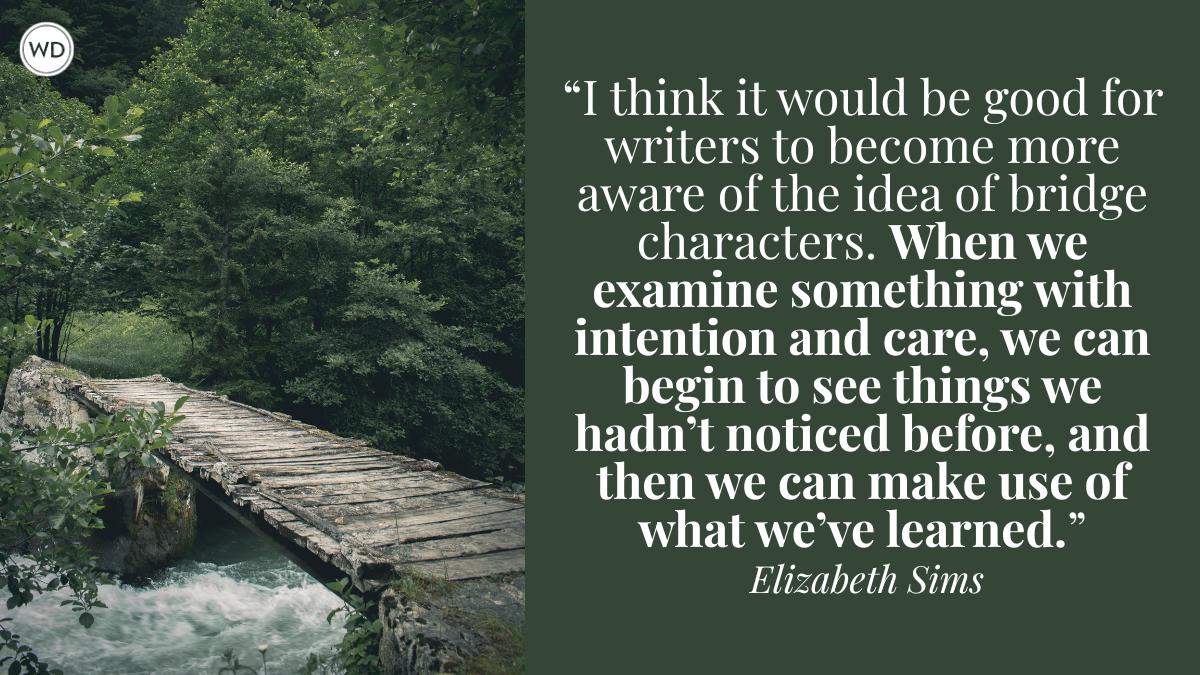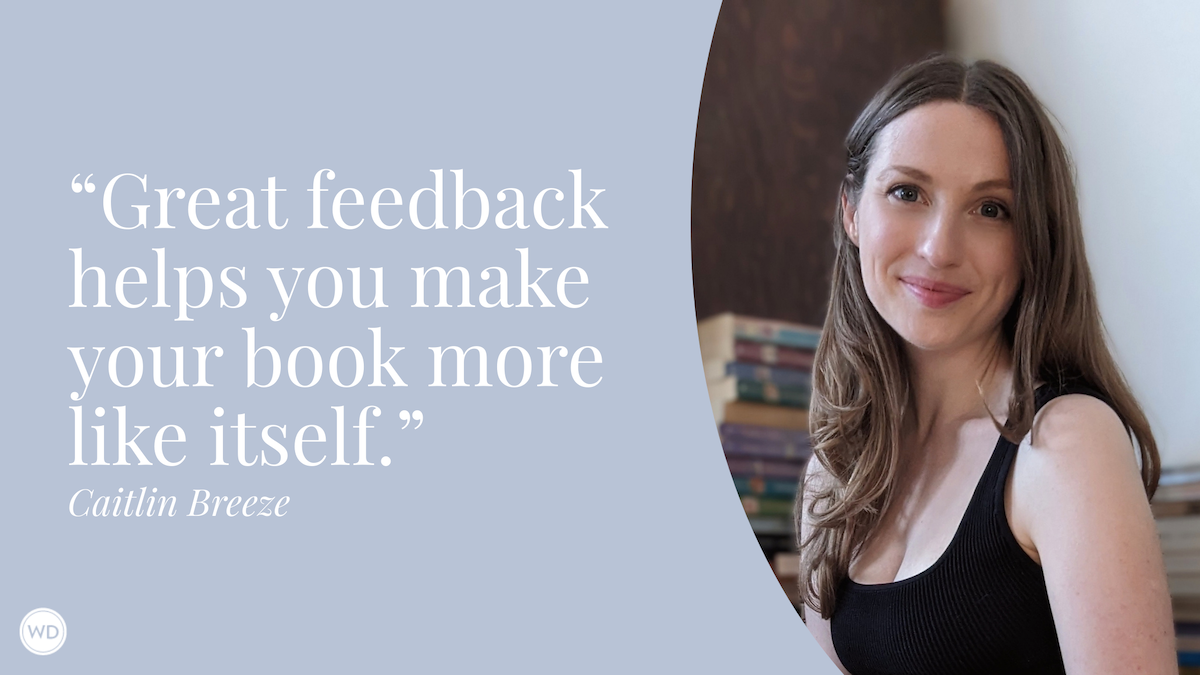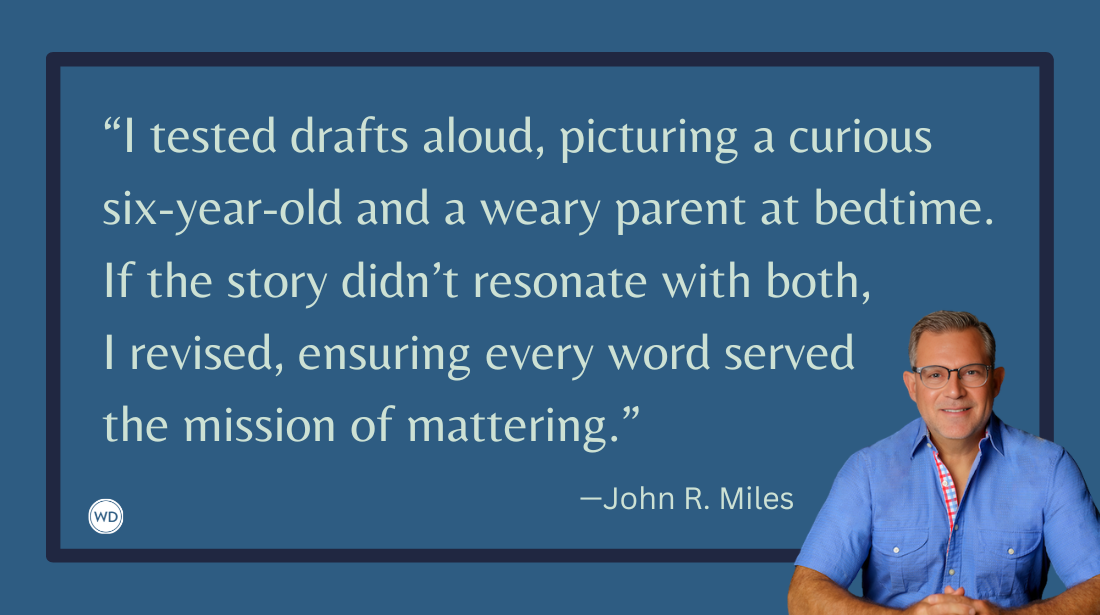8 Ways Any Writer Can Get Started in the Craft of Playwriting
Playwriting can be a terrific outlet for any writer’s talent—it not only serves as an excellent new venue for your work, but it can also sharpen your style and boost your overall writing ability in innumerable ways. Interested, but unsure of how, exactly, to get your feet wet? Here are eight things any writer can do to get a jump-start writing for the stage.
Writing for the stage is an exhilarating experience. I’ll never forget the first time I saw my scruffy pages of dialogue transformed into flesh-and-blood drama on an off-off-Broadway stage in New York’s East Village in the late 1960s.
—Fred White
Before I started writing plays, I wrote short stories, poems and essays. Looking back, I realize that working in these genres proved to be fantastic preparation for playwriting. By writing fiction I learned story structure and character development; by writing poetry, I learned the effective use of diction and rhythm; and by writing essays I learned to convey core factual information clearly and engagingly. In other words, no matter what genre a writer writes in, there’s a good chance it’s left him primed in one way or another to cross over into the thrilling world of writing for the stage.
Playwriting can be a terrific outlet for any writer’s talent—it not only serves as an excellent new venue for your work, but it can also sharpen your style and boost your overall writing ability in innumerable ways.
Interested, but unsure of how, exactly, to get your feet wet? Here are eight things any writer can do to get a jump-start writing for the stage.
1. Involve yourself with all facets of theater.
Get to know the scene. Volunteer your services backstage; attend rehearsals; study how directors work; maybe even audition for parts. Immerse yourself, and the writing will come much more naturally when you sit down at a blank page.
By observing directors and actors on the job, you’ll also discover how collaborative theater is—and why it is so collaborative. Sometimes what I assumed would work just fine on stage as I was drafting a script turned out to be unworkable live.
2. Study the texts of plays before and after you see them performed.
This will give you a keen sense of the correlation between a script, its staged rendering, and the way both evolve. Pay attention to how dialogue moves the story forward and illuminates character traits. Works by major playwrights, from Sophocles to Tennessee Williams, are available in bookstores, libraries and online. Texts of plays by lesser-known writers can be obtained from various script distributors.
3. Familiarize yourself with standard playscript format.
On the first page of your play, you should identify the cast members, the setting, and what is taking place as the curtain rises. Then, most directors and play publishers prefer that you follow this basic format: 1) Type character names in all caps and center them; 2) single-space dialogue, but add a line break between characters; 3) place stage directions in parentheses, offset on either side by a line break.
As for length, a one-act play is 30–60 pages; a standard full play (preferred by most theaters) is 90–120 pages. Each page of your script generally amounts to one minute of stage time.
4. Keep casts, sets and scenes simple; focus on character development instead.
Drama, like prose fiction, is about people, about the clash between justice and injustice of one form or another. Excessive props and elaborate sets are more likely to detract rather than augment this directive. Keep in mind that most of Shakespeare’s plays can be performed on a bare stage.
5. Don’t overdo stage directions.
Include only what is necessary to ensure clarity in your play. Manner of speech, gestures and stage movement (other than exiting and entering) are the province of the director.
6. Stage-test your play.
By that I mean to find an amateur theater group, or the drama department of a college in your community, or even a group of trusted friends or family willing to give your play a dramatic reading, followed by a critiquing session. Dramatic readings won’t give you a sense of how the play would be blocked out on a stage, but they will give you a sense of pacing, coherence and how well the dialogue moves (or does not move) the story forward. Problems related to character and pacing can and should be resolved through dramatic readings.
7. When your play is ready to submit, contact play publishers, not individual theaters.
Theaters typically obtain scripts from play publishers. You can find many of these publishers through resources such as Writer’s Market, or by doing some online searching. (Submission guidelines vary industrywide.) The most prominent publishers include Big Dog Plays, Broadway Play Publishing, Eldridge Publishing, and Pioneer Drama Service. (When visiting the websites of these and other play publishers, be sure to read the synopses of the plays they offer for sale—they’ll give you a sense of the plays that get bought, cast and produced throughout the industry.)
When a theater buys one of your plays, the publisher will send you a royalty statement, just like a book publisher would. The statements show the number of scripts sold, as well as the number of actual productions mounted (which will garner considerably higher royalties).
You may be wondering about agents. Literary agents, with rare exceptions, do not solicit plays from writers; these are handled by theatrical agents. Alas, such agents will not work with an unestablished playwright until she has had a play performed—at which time the director associated with the theater will often recommend him to an agent.
8. Consider entering playwriting competitions.
Several colleges, theater companies and literary festivals sponsor annual playwriting contests. Winning one of these gives you exposure and a great shot at hitting the big time—that is, the metropolitan commercial theaters. Because producing plays in commercial theaters is prohibitively expensive, only the most promising, highly regarded, thoroughly tested plays stand a chance of attracting producers and investors. Winning a prominent contest puts you closer to all of these factors.
Making it as a playwright today is not easy. The competition is fierce, and the market tough. But if you learn your craft thoroughly, write the best play you possibly can, and dive headfirst into the electrifying world of theater—you will improve your chances for success … dramatically.
Follow me on Twitter: @BrianKlems
Check out my humor book, Oh Boy, You're Having a Girl.
Sign up for my free weekly eNewsletter: WD Newsletter









